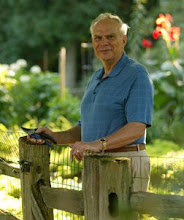As he steams up the Congo, Marlow feels the immense mystery of the jungle as though he were "travelling back into the earliest beginnings of the world, penetrating into the presence of an "implacable force brooding over an inscrutable intention" (95). The jungle appears an evil entity, and he realizes that he is surrounded by a crew of cannibals on a rickety steamer that has run out of provisions. He comments" "It was unearthly, and the men were--No, they were not inhuman. . . that was the worst of it--this suspicion of their not being inhuman" (98). Why is this thought so unnerving? He begins to realized that there is a breadth to human nature of which he has not been aware. This realization must be met, not with principles, but with a "deliberate belief." Why won't principles do? Because they are held by the mind only. Belief encompasses the emotions and plumbs the true nature of a person, issuing in commitment and action.
The description of the native fireman (98, 99) vividly depicts Marlow's view of the natives. Suddenly an unearthly shriek arises from the jungle, and as they near Kurtz's station, they are startled to be met with a hail of arrows. We are told (108) that the natives fear invasion and are merely being protective, but the white pilgrims on the steamer do not understand the attack in that light and begin firing back, randomly, into the jungle. Marlow's native helmsman is struck and killed by a spear.
Marlow desperately enlists a novice to continue steering and tries to cope with the attack. But he is preoccupied with his desire to met Kurtz, to hear his voice, his words. Marlow wonders: are his words "a pulsating stream of light, or the deceitful flow from the heart of an impenetrable darkness"? (113) For knows that Kurtz has fallen prey to savage rituals (115, 117), and the absurdity of the situation hits him.
As Marlow recalls Kurtz's words, the story of his tragic spiritual fall unfolds (117). Kurtz had accepted the role of a supernatural being to the natives, and had assumed the authority and prerogatives of a god, exercising complete power over the natives. If you are a part of the Saturday group that has been discussing Tolkien's The Lord of the Rings, you no doubt recognize that what Conrad is saying here is very like what Tolkien has in mind in the symbol of the Ring: the great wrong of exercising coercive power over other human beings. Kurtz's arrogance degenerates his soul to the extent of his writing a postscript to the pamphlet he entrusted to Marlow: "Exterminate all the brutes!"
The mystery of Kurtz is further deepened as Marlow, when he arrives at Kurtz station, is met by a curiously dressed Russian who attests that Kurtz "has enlarged my mind," and has the utmost reverence for him. How can this be? Conrad is deepening the mystery of human nature by suggesting how gullible people can be, how easily they may be taken in by an idealistic lie.

No comments:
Post a Comment